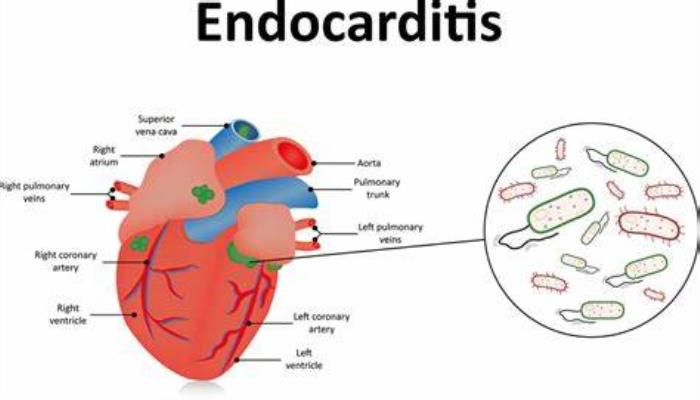Heart valve replacement is a critical procedure for individuals suffering from severe valve dysfunction. Timely intervention ensures that the heart continues to pump blood effectively, preventing complications that can arise from prolonged strain on the heart. Delaying surgery can lead to irreversible damage, reduced quality of life, and increased risks of serious conditions like heart failure or stroke.
Medical disclaimer: This content is for general awareness and does not replace a doctor’s consultation. For diagnosis or treatment decisions, consult a qualified specialist.
Common Reasons for Delaying Surgery
Many patients postpone heart valve replacement due to fear of surgery, lack of awareness, or mismanagement of initial symptoms. Additionally, logistical challenges such as financial concerns or limited access to specialized healthcare facilities can contribute to delays. These factors often lead to worsening of the condition.
How Delays Affect Heart Function Over Time
Heart valves regulate blood flow through the heart, and any dysfunction increases the workload on the heart muscle. Over time, this added strain can cause the heart chambers to enlarge and weaken, reducing the heart's ability to pump efficiently. The longer the delay, the greater the risk of permanent damage to the heart.

Increased Risk of Heart Failure Due to Delayed Treatment
Untreated heart valve disease can lead to congestive heart failure, where the heart is unable to pump blood adequately to meet the body’s needs. Symptoms such as severe shortness of breath, swelling in the legs, and persistent fatigue are indicators that the condition is progressing toward heart failure.
Progression of Symptoms and Impact on Quality of Life
Delaying surgery often results in worsening symptoms such as fatigue, chest pain, and difficulty breathing. These symptoms can limit daily activities and significantly reduce the quality of life. Prolonged delays may also lead to complications that make recovery from surgery more challenging.
Understanding Irreversible Damage to the Heart
The longer the heart is subjected to abnormal blood flow caused by valve dysfunction, the greater the likelihood of irreversible structural changes. This includes scarring of the heart muscle and loss of elasticity in the heart chambers, which may persist even after surgery and impact long-term outcomes.
The Link Between Delayed Surgery and Stroke Risk
Valve disease can increase the risk of blood clots, particularly in conditions like mitral or aortic valve stenosis. Delays in treatment heighten the chances of these clots traveling to the brain, causing a stroke. Timely valve replacement significantly reduces this risk by restoring normal blood flow and minimizing clot formation.
Increased Risk of Infections like Endocarditis
Delaying heart valve replacement surgery increases the risk of infections such as endocarditis. This potentially life-threatening infection can damage the heart further and make surgical intervention more complicated. Prompt surgery significantly reduces this risk by restoring proper valve function.

How Delays Can Complicate Future Surgical Outcomes
Postponing surgery can lead to worsening of the heart valve condition, resulting in structural damage to the heart and surrounding tissues. This can complicate the surgical procedure and negatively impact recovery outcomes, making a successful intervention more challenging.
The Emotional and Psychological Toll of Prolonged Symptoms
Living with the symptoms of advanced heart valve disease can take an emotional and psychological toll, leading to anxiety, depression, and a diminished quality of life. Timely surgery alleviates these burdens by addressing the root cause of the symptoms.
Challenges in Managing Advanced Heart Valve Disease
As heart valve disease progresses, symptoms like breathlessness, fatigue, and swelling become harder to manage, even with medication. Advanced stages often require more intensive interventions, increasing the complexity and risks of treatment.
When Medications Are No Longer Enough
Medications can only manage symptoms temporarily. Delaying surgery allows the disease to progress to a point where medications become ineffective, leaving surgery as the only viable option. Acting early prevents this scenario and ensures better long-term outcomes.
Risk of Sudden Cardiac Arrest with Delayed Surgery
A prolonged delay in surgery significantly increases the risk of sudden cardiac arrest, particularly in patients with severe valve dysfunction. This life-threatening complication can often be avoided with timely surgical intervention.
Delayed Surgery and Its Impact on Overall Longevity
Studies show that delaying heart valve replacement surgery reduces life expectancy by increasing the likelihood of complications, such as heart failure. Addressing the condition early not only improves survival rates but also enhances quality of life.
How Age and Comorbidities Influence the Risks of Delay
Older patients and those with comorbid conditions like diabetes or kidney disease face heightened risks when surgery is delayed. The combined strain on the heart and overall health can complicate both the procedure and recovery.
Financial and Logistic Challenges of Postponing Treatment
Delaying surgery often leads to higher medical expenses due to additional treatments, emergency care, and extended hospital stays. Planning surgery early can reduce overall costs and logistical burdens on patients and caregivers.
Recognizing the Warning Signs That Surgery Is Urgent
Symptoms such as worsening shortness of breath, chest pain, fainting, or significant fatigue signal that surgery may be urgent. Ignoring these warning signs increases the risk of irreversible damage to the heart and other complications.
Expert Recommendations on Timing Heart Valve Surgery
Cardiologists recommend surgery at the appropriate stage of heart valve disease, often when symptoms first appear or test results indicate significant valve dysfunction. Following expert advice ensures the best outcomes.
Success Rates and Outcomes with Timely Surgery
Timely heart valve replacement surgery boasts high success rates and excellent long-term outcomes. Patients experience significant symptom relief, improved heart function, and a better quality of life when surgery is performed at the right time.
The Impact of Heart Valve Disease on Daily Activities
Explore how heart valve disease affects daily activities. From fatigue to shortness of breath, this condition can significantly impair everyday tasks. This article sheds light on the challenges faced by individuals and the benefits of treatment in restoring normal life.
Conclusion: Acting Early for Better Health Outcomes
Delaying heart valve replacement surgery carries significant risks, including infections, worsening symptoms, and reduced survival rates. Acting promptly not only minimizes complications but also improves long-term health and well-being. Early intervention ensures a higher likelihood of successful outcomes and a return to a normal lifestyle.
Best Heart Valve Replacement Surgeons in India
The Best Heart Valve Replacement Surgeons in India are highly skilled in complex valve procedures, offering personalized care to help patients achieve successful outcomes and enhanced heart health.
FAQs
What are the risks of delaying heart valve replacement surgery?
Delaying surgery increases the risks of infections like endocarditis, heart failure, and sudden cardiac arrest. It also complicates future surgical outcomes.
Can heart valve disease worsen without surgery?
Yes, untreated heart valve disease typically progresses, leading to worsening symptoms, heart damage, and life-threatening complications.
What symptoms indicate that surgery should not be delayed?
Symptoms such as severe shortness of breath, chest pain, fainting, or significant fatigue suggest that surgery may be urgently needed.
How does delayed surgery affect the chances of recovery?
Delaying surgery can worsen heart function, complicate the procedure, and reduce recovery chances, particularly in advanced disease stages.
Is it safe to manage heart valve disease with medications instead of surgery?
Medications can manage symptoms temporarily, but they cannot address the underlying valve dysfunction. Surgery is often the only definitive treatment.
Explore the Best Heart Care Resources in India
Find some of the top cardiologist, surgeons and the best heart hospitals in India
Best Heart Hospitals in India
Choosing the right hospital is crucial for successful heart treatments. If you want to explore trusted options, check the list of Best Heart Hospitals in India offering world-class facilities, advanced cardiac care units, and experienced teams for both simple and complex procedures.
Best Cardiologists in India
Finding the right cardiologist can make a huge difference in early diagnosis and long-term heart health. If you are looking for the Best Cardiologists in India, see this curated list of experts who specialize in preventive care, interventional cardiology, and complex heart disease management. Check the full list Best Cardiologists in India.
Best Cardiac Surgeons in India
If you are planning for heart surgery and need top-level expertise, we recommend exploring the Best Cardiac Surgeons in India. These surgeons have a proven record in performing bypass surgeries, valve replacements, and minimally invasive heart operations with excellent outcomes.
Get more indepth information on Cardiology treatments and their costs.
Conclusion
Your cardiology health deserve the best care. Explore the links above to learn more about the top cardiac hospitals and cardiac surgeons in India.
Preventing infection after heart valve surgery is crucial for a successful recovery. Best practices include maintaining proper hygiene, such as frequent handwashing and keeping the incision site clean and dry. Patients should follow their healthcare provider's instructions for wound care and take prescribed antibiotics as directed. Avoiding contact with sick individuals and attending all follow-up appointments are also essential. These measures help reduce the risk of post-surgical infections and promote healing. Preventing Infection After Heart Valve Surgery: Best Practices
Heart valve disease can significantly affect daily activities by causing symptoms such as shortness of breath, fatigue, chest pain, and dizziness. These symptoms can limit physical exertion and reduce the ability to perform routine tasks. Managing heart valve disease through medical treatment, lifestyle changes, and regular monitoring is essential to improve quality of life and maintain daily functionality The Impact of Heart Valve Disease on Daily Activities
Cardiology consultations before heart valve replacement surgery are essential for evaluating the patient's overall heart health and determining the most appropriate treatment plan. During these consultations, cardiologists assess the severity of valve disease, review medical history, and perform necessary tests such as echocardiograms and angiograms. These evaluations help in planning the surgery, discussing potential risks and benefits, and ensuring the patient is well-prepared for the procedure. The Role of Cardiology Consultations Before Heart Valve Replacement Surgery